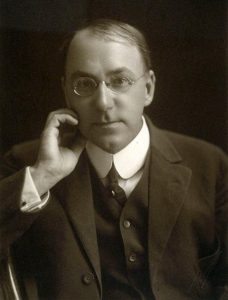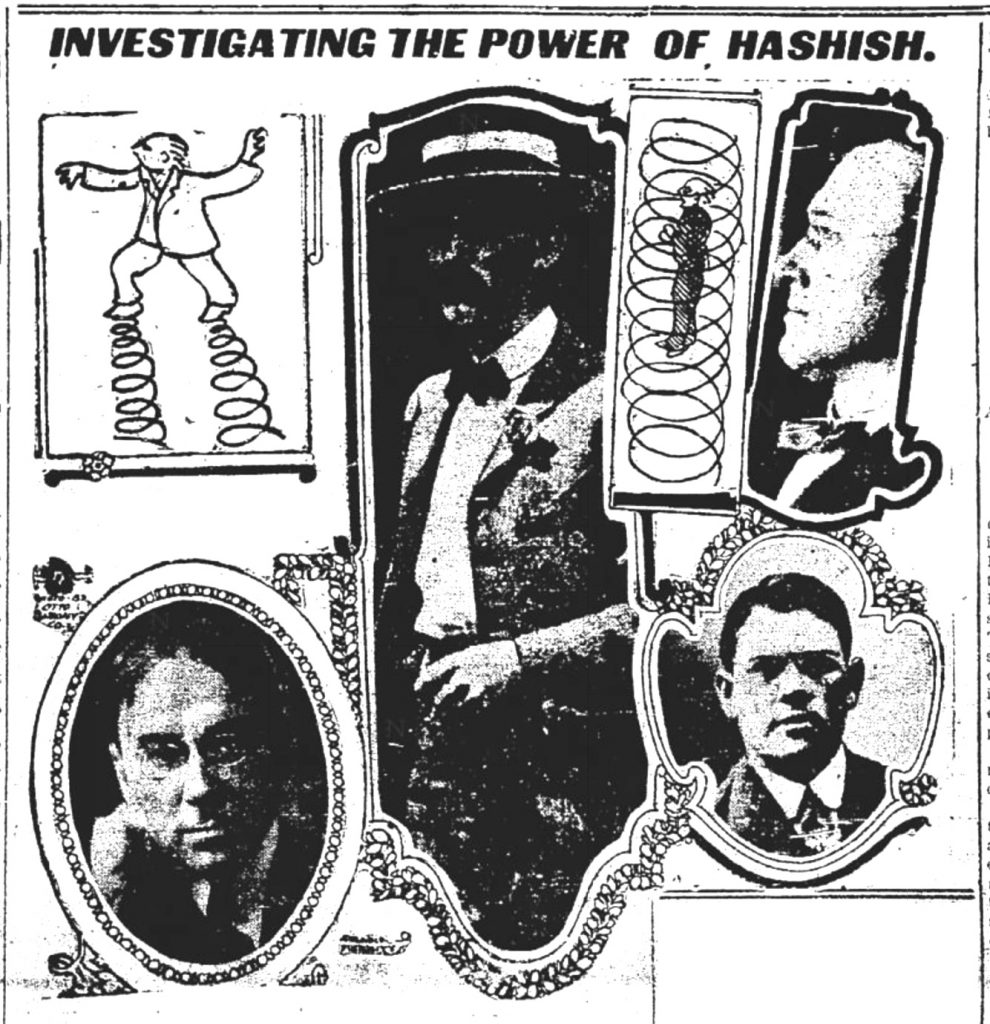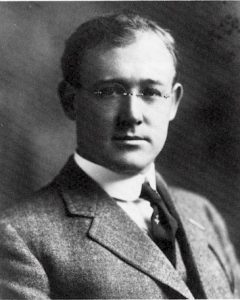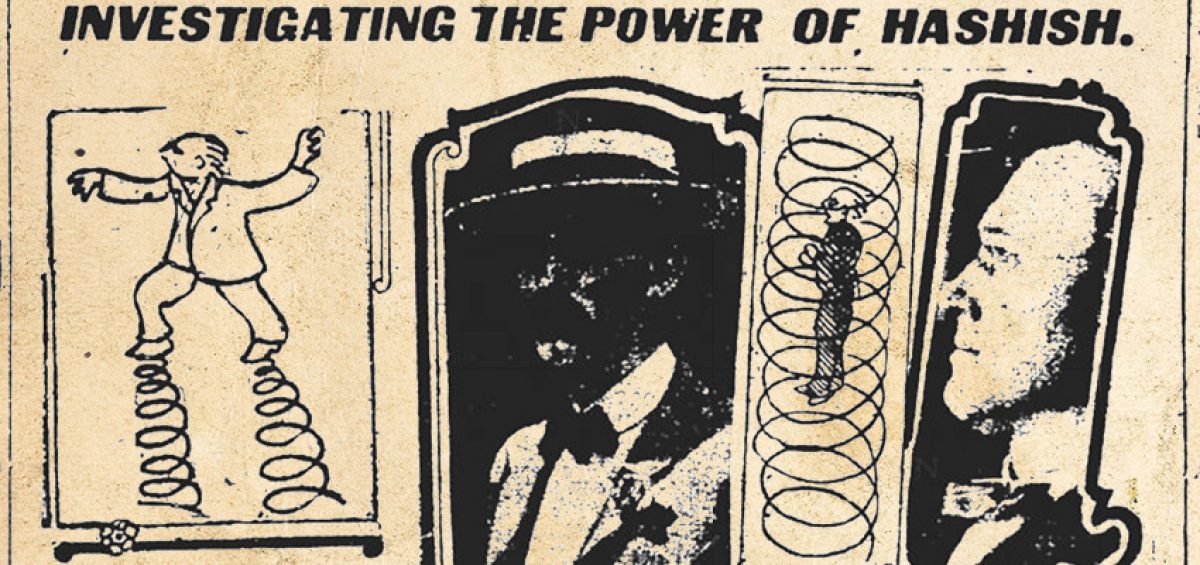Just over 100 years ago, a “hashish fad” swept through New York’s literary community. Authors hoped to find “an accelerator to literary thought and inspiration”… However, they soon discovered that when one ingests extreme doses of cannabis, the effects can be “startling” and things can spiral into ridiculousness.
Votaries Tell of the Hashish Fad
Indian Hemp Makes New York Poet Think He Is Another John Milton For the Time
The Leavenworth Times, March 2, 1908
New York, Feb. 27. — The eating of hashish (cannabis indica) has been taken up, experimentally, so it is stated, by a number of well known members of the literary coterie in this city. To a reporter it was explained yesterday that this fad was inaugurated in the hope of finding an accelerator to literary thought and inspiration, as hashish is known to produce a sort of double consciousness.
The experimenters hoped to derive additional scope of vision and extraordinary imaginative powers from the use of the drug. They hasten to point out that it is dangerous and fallacious.
Among those who have been investigating the mysterious powers of hashish are Gelett Burgess, the novelist; Will Irwin, the well known California writer; John Johnson, a poet; William Henry Pendennys, Thomas Cartright Hardy the naturalist, and others.
Amazing Effects Produced
The experiments were made in Mr. Irwin’s apartments in Twenty-eighth street, in which Mr. Burgess’ workrooms and studio on Twenty-third street and in the home of a woman prominent in literary circles. As far as could be learned yesterday many persons have tried hashish, and some of the effects it produced were startling.
Hashish or hasheesh, is a paste made from boiled down hemp buds. It is taken in pill form or spread on thinly sliced bread. It is of a dark, olive green color and has somewhat the taste of sage. The lasting effect of it varies according to the amount taken. The delusions it produces may last two or three hours, or throughout the whole night.

“I wouldn’t advise anyone to try hashish unless he has considerable courage.” – Gelett Burgess
“It makes one feel afterward,” said Gelett Burgess yesterday in discussing the matter, “as if they had been on a ten-day debauch.
My first interest in hashish was awakened,” continued Mr. Burgess, “while I was a student at the Massachusetts Institute of Technology, through ‘The Confessions of a Hashish Eater.’ With several of my class I experimented a few times, with the result that, through taking an overdose, I received such a scare as to prevent my caring to go through the experience again for fifteen years.
Worse Than Intense Seasickness
“The nausea resulting from an excessive dose was worse than the worst case of seasickness conceivable. The stimulation of the intellect, however, was interesting and unique. I had visions, a strange form of double consciousness and a fancied extension of both time and space.
“As a help to literary work, however, such experiments are valueless because what appears as marvellous visions and theories, when described afterward, sound like arrant nonsense. My wonderful revelation of the true rationale of death, for instance, while under the influence of Cannabis Indica, seemed gigantically portentous, was described by me as due to the effect of ‘spirilated mucilages.’
“I can write about purple cows while I am sane, but to urge my fancy with Indian hemp would result in – not even nonsense. My last experiment in New York was accompanied by no visions, but was worked out as a mere struggle in my mind with my memory. At times there was not an idea in my head, and my struggles to think were violent. I wouldn’t advise anyone to try hashish unless he has considerable courage.”
The last experiment to which Mr. Burgess referred was made in the apartments of Will Irwin. Some of the things that were written and drawn in the so-called state of double consciousness are shown in the accompanying illustration.

The eating of hashish has been taken up, experimentally, so it is stated, by a number of well-known members of the literary coterie in New York. At the left is shown a picture of Gelett Burgess, the novelist, and below is a sketch drawn by him while under the influence of “hashish.” In the centre is shown Thomas Hardy, the nature writer, and at the right is shown Will Irwin, the well-known California writer, and below is shown William H. Pendennys, all of whom have been investigating the power of hashish. A sketch made by John Johnson while under the drug’s influence is also shown.
Struggle of Human Will
“Burgess lay about a couch,” says an eye witness of the exponent, “his face turned toward us, his eyes half closed. Suddenly he extended his arm, clenched his fist, while his face became contorted and his teeth gnashed together. His whole body was a-quiver and he was strung to the highest pitch of nervousness, when he shouted: ‘I am conscious.’ Then he slowly began to spell ‘c-o-n’ and stopped.
“Then, clasping his head in both hands, he began slowly, ‘c-o-n.’ There was a space of at least five minutes between the utterance of each letter; then his brain seemed to off in a strange whirl, and some ten minutes later he shouted ‘s.’ He again seemed lost for a long time. Suddenly his voice broke with ‘c—o—n—s,’ and later he called out slowly, ‘c—-o—-n—-s.’ Thereupon Burgess sat upright and called out: ‘There is something wrong; something is missing. Why don’t you help me? Please help me?’ No one in the place made a move and it was a long time before he finally shouted out, ‘c—i—o—u—s.’
“This experiment was interesting from the fact that Burgess attempted to show that one could remain conscious under the effects of hashish. While his contentions are wrong, it demonstrates that periods of consciousness follow quickly those of unconsciousness.”
“A doctor was present at the time of the Burgess experiment, in case he might be needed in an emergency. This physician also attended when William Henry Pendennys and John Johnstone tried the drug.
A Hashish-Inspired “Poem”
Mr. Pendennys illustrated the effect of hashish on his with a poem. It had been arranged that he was to be handed pad and pencil and write a brief verse while under the spell. Here is the result:
As one who, diving in a hidden sea,
Meseems mine eyes were blinded unto crime,
Who were the morbid vipers to whose time
A snealy hypocrite comes unto me?
Why should I yearn, I climb the violet tree,
Upon the quest of evanescent slime
And truth, methinks, was scarcely worth a dime!
So were my theories of the Sapersee.
Poet Pendennys is unable to explain some of the vernacular of his verse. He says that the word “snealy” came to him, he thinks, while considering something sneeringly, sneaking or mealy. The capitalized “Sapersee” he is at a loss to explain. He says it seemed amazingly fine and important to him while under the hashish spell, but for the life of him he can’t tell what it refers to now.
“I was overjoyed and buoyed up by the thought that I was a second Milton,” says Mr. Pendennys. “I had the impression that I was inditing masterpieces that would live for all ages. Then I woke up, or, to be exact, I recovered from the hashish and become disillusioned.”
Walking Over Lofty Buildings
The drawings made by Mr. Burgess and by Mr. Johnstone are interesting, especially when described by them. The spiral tube in which Johnstone thought he was stretched out was, he says, of marvellous hued glass in a myriad of colors. Mr. Burgess says the sensation of walking high over the tops of buildings on spiral springs was the oddest sensation of his life.

“When an intimate friend sits up and tells you he’s been dead for six days, then you’re not particularly encouraged to try it yourself.” – Will Irwin
Will Irwin states that he prefers to witness experiments with hashish rather than to try them himself.
“I should describe hashish as a ratiocination-producer,” says he, “but I desire to give it out officially, in large red letters, that personally I don’t care to dally with the demon dope. It’s funny how the green stuff throws you down. I’ve seen Burgess getting over a block-coffee ecstacy, when he and Henry James locked in the coal cellar ringing up ‘information,’ but this time he was a cross between the Baron Munchausen and Demosthenes, Jr. No, sir! When I want to get good and seasick to the ninth degree I wish a change of scene thrown in. Even if Indian hemp will make my New York flat appear to be five miles long and three miles wide, I won’t take it. My reform is purely ex post facto.
World Funny Enough Without it
“After listening to Burgess trying to explain the Fourth Dimension in Esperanto, and undergoing Pendenny’s ‘bhang’ fed poetry, I find my mind’s going round fast enough, thank you! My own idea of stimulation is to open the door of Sanguinetti’s restaurant in ‘The City That Was,’ about 7 o’clock of a Summer Sunday night. That’s good enough for me. The world is funny enough without trying to turn your brain inside out, and navigating invisible flying machines. When an intimate friend sits up and tells you he’s been dead for six days, then you’re not particularly encouraged to try it yourself.”
Gelett Burgess has been known as an experimenter before. It was he who coined the phrasing for the human classification of “bromides” and “sulphites.”
— From the New York American.



